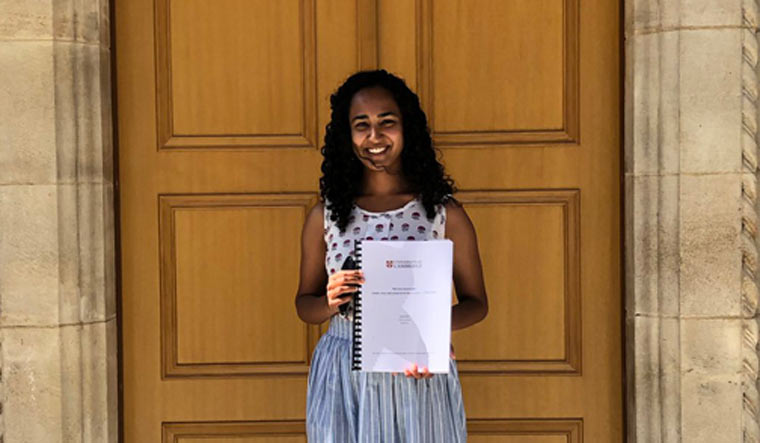More than 1,000 professors, lecturers and PhD candidates in the UK have signed an open letter to the UK government, asking it to reconsider its decision to deny permanent residency to a 31-year-old Cambridge University scholar from Aligarh. Asiya Islam, a junior research fellow of the sociology department of Cambridge University, had arrived in the UK in 2009, reported The New York Times.
The protest is growing! If you're an academic at a UK university, pls consider signing this open letter which just over the weekend has amassed over 100 signatures. #hostileenvironment https://t.co/rQyzpIv0uN https://t.co/PFHFKlPiT3
— Asiya Islam (@asiyaislam) November 10, 2019
If the Home Office does not reconsider its decision, Asiya would have to leave the UK by January. Asiya shared her plight on Twitter last week and quickly grabbed attention. An open letter on her case was uploaded on Google Docs on November 10 and by Tuesday morning, had attracted over 1,300 signatures.
Asiya has had an impressive academic record, which includes being a Gates scholar at Cambridge, the best degree performance award at the London School of Economics and the Dr Zakir Hussain medal for academic excellence from Aligarh Muslim University. The UK government turned down Asiya's request for permanent residency on the grounds she spent too much time outside the country working on her doctoral thesis.
According to immigration rules in the UK, people seeking permanent residency should not spend more than 540 days outside the country over the course of a decade—or 180 days at a stretch. According to The New York Times, Asiya spent nearly an year in New Delhi in 2016-2017 for her doctoral thesis work. Despite Asiya providing letters from Cambridge, the Home Office ruled she had "failed to provide any exceptional reasons" for an exemption from the rules.
also read
- Holly Bramley death: UK man admits to killing wife, chopping her into over 200 pieces
- Briton born the same year the Titanic sank, is the oldest living man at 111
- Pressure mounts on Sunak as UK judges, experts call for halt in arms sales to Israel
- UK counterterrorism police investigate attack on journalist outside his London home
In a letter to Asiya, the Home Office claimed she had spent 647 days abroad in the past 10 years, meaning she had exceeded its limits for permanent residency.
Speaking to The New York Times, Asiya claimed, “I am highly skilled and bringing my expertise to U.K. academia and value to the UK economy, and that does not seem to have been considered at all in the decision-making process.” Professor Sarah Franklin, the head of the sociology department at Cambridge, described the Home Office’s decision an “outrageous breach of common sense”. Franklin argued the policy would undermine the UK's universities rather than protect them.


